We’ve been talking A LOT about the Seattle minimum payment standard for delivery workers recently. If you work on an on-demand delivery platform in Seattle like Grubhub or DoorDash you already know why it matters. You’ve seen your income take a big hit, up to 50%. You’ve seen tips all but disappear. Wait times are up to 30 minutes or more between orders. However, if you are a rideshare driver, who’s already feeling the effects of a loss of demand, or you work delivery in Everett, Tacoma, or even Spokane, you might be thinking, “this is a typical Seattle problem, it doesn’t affect me, why should I care?” Do you want to lose income, have restaurant deliveries dry up, work longer to earn less at the end of the day? Well, if this broken law stays in effect, it will come to other parts of the state soon.
Rideshare regulations provide a good parallel.
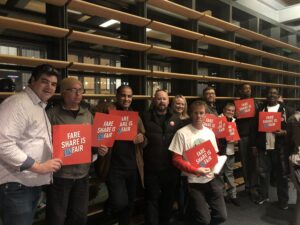 Looking back at the process that brought a statewide minimum earning to the rideshare industry we find that it all started in Seattle. In 2019 the city passed the Fare Share law which is a minimum payment standard for rideshare drivers, however, this law reads like a union collective bargaining agreement not a wage ordinance. While it raised payments to drivers, the companies, in response, raised prices to consumers. This law took effect in January of 2021 in the middle of the pandemic which muted its drastic effects as ridership was already depressed. Due to COVID the resulting data was disguised as there were so few trips. In January 2021 the Washington State Legislature entered discussions on a statewide rideshare minimum payment standard, which it modeled on the Seattle law falsely believeing it was raising driver pay. During the negotiations on this new state legislation the only people allowed in the room were the companies and the Teamsters Union. Drive Forward was locked out!
Looking back at the process that brought a statewide minimum earning to the rideshare industry we find that it all started in Seattle. In 2019 the city passed the Fare Share law which is a minimum payment standard for rideshare drivers, however, this law reads like a union collective bargaining agreement not a wage ordinance. While it raised payments to drivers, the companies, in response, raised prices to consumers. This law took effect in January of 2021 in the middle of the pandemic which muted its drastic effects as ridership was already depressed. Due to COVID the resulting data was disguised as there were so few trips. In January 2021 the Washington State Legislature entered discussions on a statewide rideshare minimum payment standard, which it modeled on the Seattle law falsely believeing it was raising driver pay. During the negotiations on this new state legislation the only people allowed in the room were the companies and the Teamsters Union. Drive Forward was locked out!
Without our voice in the room the Legislature locked in the Seattle’s prices and created a similar pricing scheme throughout the state in another law that looked like a collective bargaining agreement not a minimum wage regulation.
How has this worked?
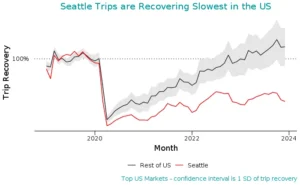 It’s not been good. In Seattle and King County since the Fare Share law and the state minimum payment standard went into effect, rideshare trips have fallen from 36.8million in 2019 to approximately 21.5million in 2023 a drop of 42%. This large drop in demand has caused 12,000 drivers to stop working in rideshare just in Seattle and King County, according to data obtained from King County through a public records request. That is 12,000 families that can no longer enjoy the flexibility and opportunity on-demand work provides. The proponents of these new laws will tell you that the reduction in rides and opportunity is due to the increase in people working from home, and other consumer behavior changes resulting from COVID not the new wage laws that really are collective bargaining agreements. Once again, they are spreading propaganda and misinformation not based in data and facts.
It’s not been good. In Seattle and King County since the Fare Share law and the state minimum payment standard went into effect, rideshare trips have fallen from 36.8million in 2019 to approximately 21.5million in 2023 a drop of 42%. This large drop in demand has caused 12,000 drivers to stop working in rideshare just in Seattle and King County, according to data obtained from King County through a public records request. That is 12,000 families that can no longer enjoy the flexibility and opportunity on-demand work provides. The proponents of these new laws will tell you that the reduction in rides and opportunity is due to the increase in people working from home, and other consumer behavior changes resulting from COVID not the new wage laws that really are collective bargaining agreements. Once again, they are spreading propaganda and misinformation not based in data and facts.
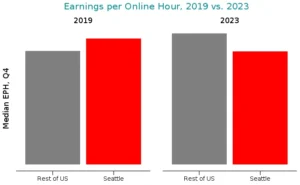 In a recent publication, Uber released data on how the Seattle market is faring compared to other major markets in the United States. As we know rides are down 42% here but in those other markets rides have recovered to at or above pre-COVID demand! Additionally, Uber’s data shows that drivers in Seattle are making less per online hour now than they were in 2019. Meanwhile, in other markets drivers are making more per online hour now than pre-COVID. So no, it’s not consumer behavior that has change due to people working from home, it’s solely the cost of the service because of these laws. No other market has these kind of collective bargaining agreements disguised as minimum wage laws.
In a recent publication, Uber released data on how the Seattle market is faring compared to other major markets in the United States. As we know rides are down 42% here but in those other markets rides have recovered to at or above pre-COVID demand! Additionally, Uber’s data shows that drivers in Seattle are making less per online hour now than they were in 2019. Meanwhile, in other markets drivers are making more per online hour now than pre-COVID. So no, it’s not consumer behavior that has change due to people working from home, it’s solely the cost of the service because of these laws. No other market has these kind of collective bargaining agreements disguised as minimum wage laws.
So how is all this talk of rideshare relevant to delivery?
The PayUp law that set Seattle’s minimum earning standard for delivery app workers is modeled directly from these rideshare laws. Just like the ridesharee laws, this delivery law uses the same language, the same payment mechanism, and has the same provisions that makes it a collective bargaining agreement not a wage ordinance. If Seattle’s PayUp law stays in place, the State Legislature WILL use it as a framework for statewide legislation in the near future, just like they did for rideshare. However, the effect on delivery will be even more pronounced. Just in the first three months we’ve already seen many delivery drivers leave the platforms because they can no longer make a living. For those that have stayed, earnings have dropped up to 50%. Do you really want this to come to Tacoma, Everett, Federal Way, Bellevue, or Spokane?
It’s time to help your colleagues in Seattle, show them you support their efforts through Drive Froward to fix this law so we can once and for all prove there is a way for drivers to be fairly compensated, above minimum wage, without crushing demand through large price hikes.
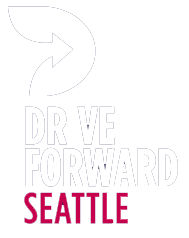
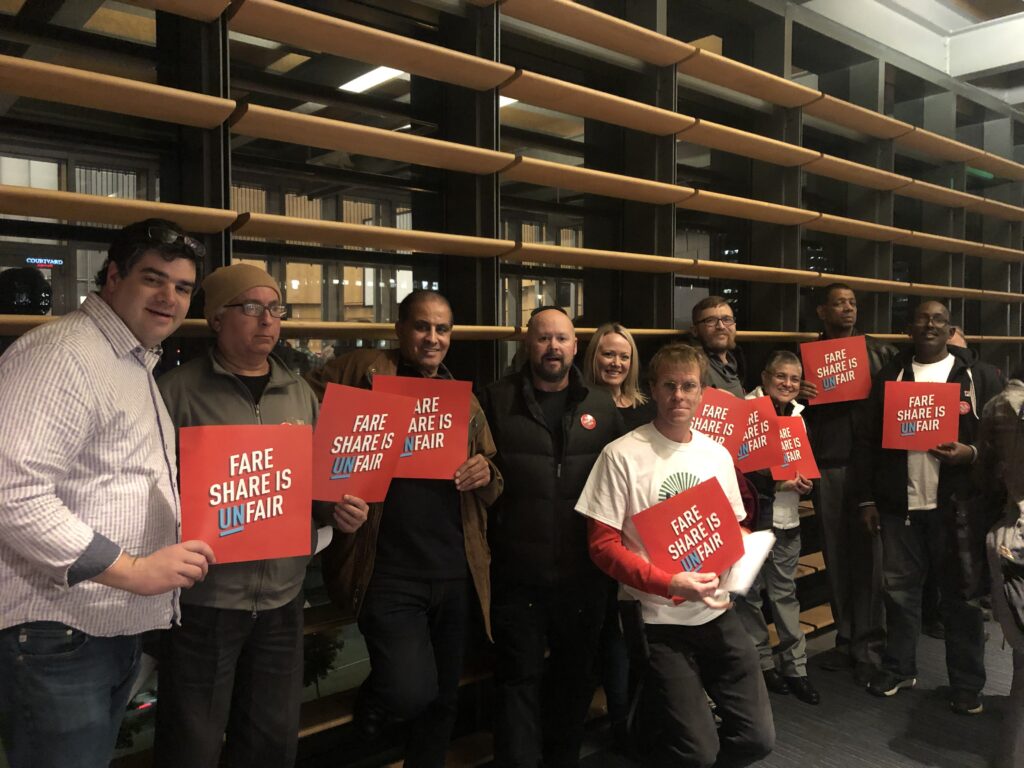
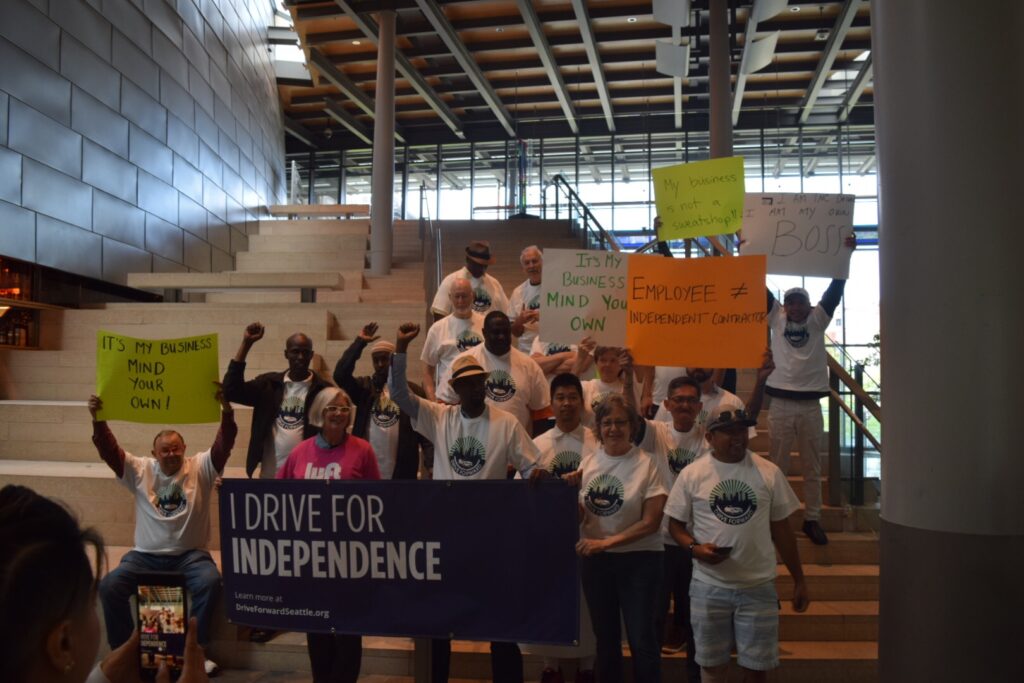
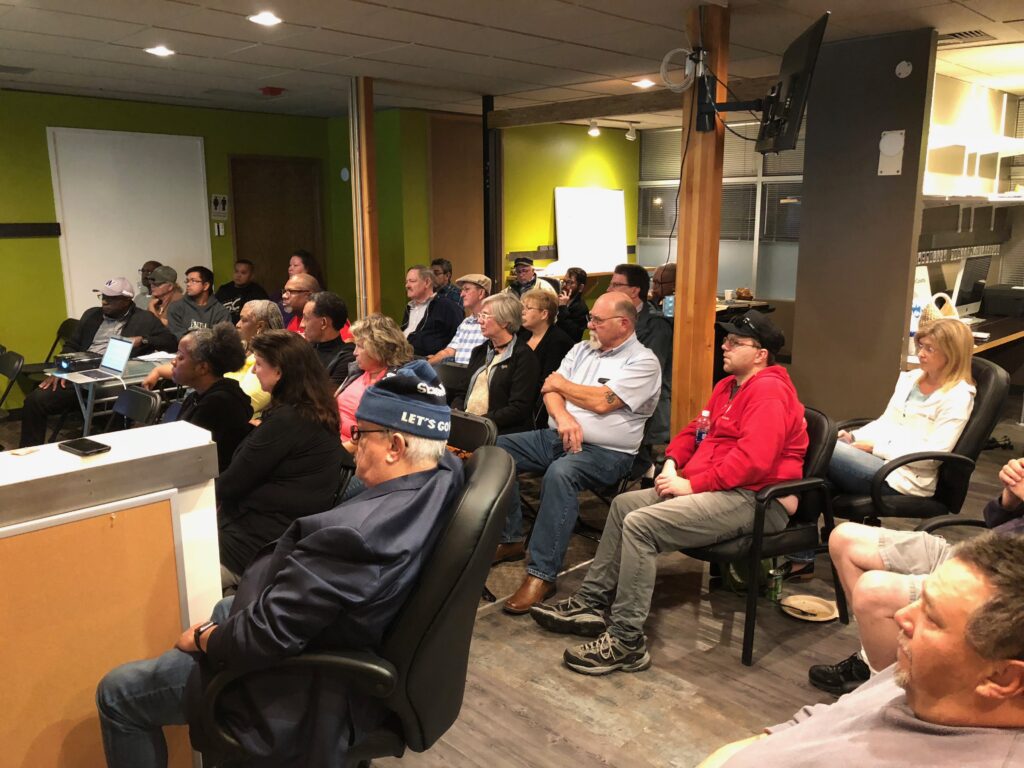
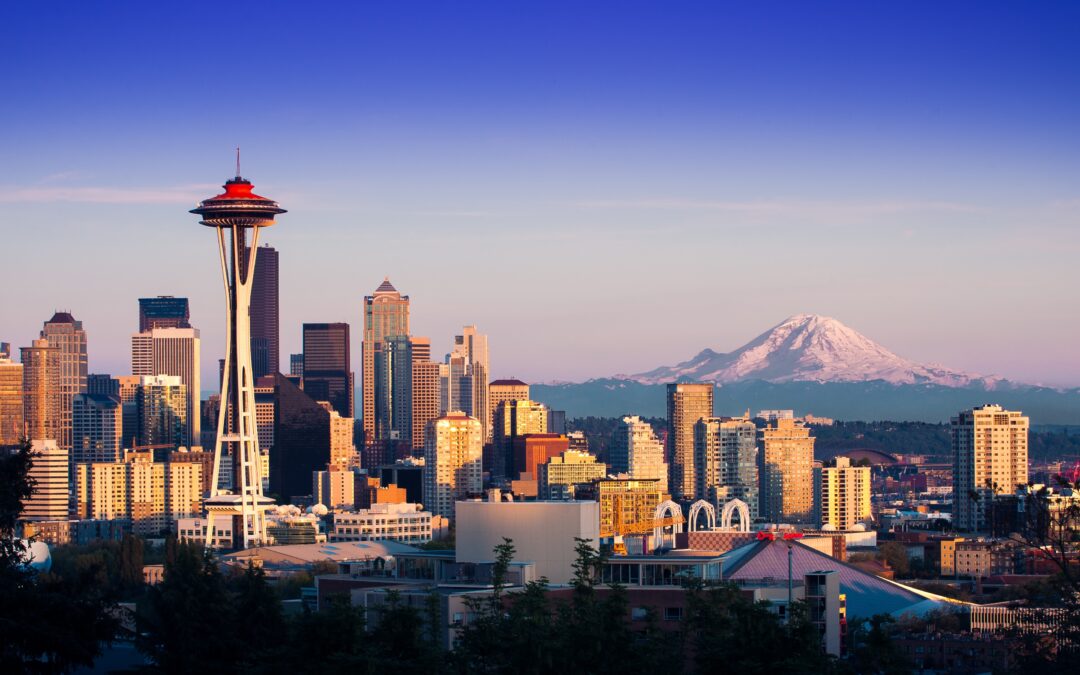
Recent Comments